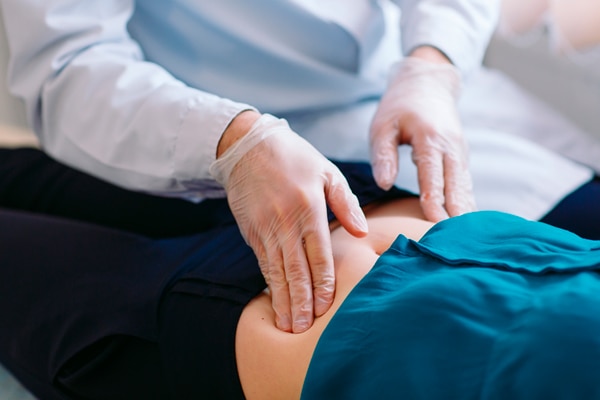Diagnosis of Gastroparesis
How do doctors diagnose gastroparesis?
Doctors diagnose gastroparesis based on your medical history, a physical exam, your symptoms, and medical tests. Your doctor may also perform medical tests to look for signs of gastroparesis complications and to rule out other health problems that may be causing your symptoms.
Medical history
Your doctor will ask about your medical history. He or she will ask for details about your current symptoms and medicines, and current and past health problems such as diabetes, scleroderma, nervous system disorders, and hypothyroidism.
Your doctor may also ask about
- the types of medicines you are taking. Be sure to tell your doctor about all prescription medicines, over-the-counter medicines, and dietary supplements you are taking.
- whether you’ve had surgery on your esophagus, stomach, or small intestine
- whether you’ve had radiation therapy on your chest or stomach area
Physical exam
During a physical exam, your doctor will
- check your blood pressure, temperature, and heart rate
- check for signs of dehydration and malnutrition
- check your abdomen for unusual sounds, tenderness, or pain

What medical tests do doctors use to diagnose gastroparesis?
Doctors use lab tests, upper gastrointestinal (GI) endoscopy, imaging tests, and tests to measure how fast your stomach is emptying its contents to diagnose gastroparesis.
Lab tests
Your doctor may use the following lab tests:
- Blood tests can show signs of dehydration, malnutrition, inflammation, and infection. Blood tests can also show whether your blood glucose levels are too high or too low.
- Urine tests can show signs of diabetes, dehydration, infection, and kidney problems.
Upper GI endoscopy
Your doctor may perform an upper GI endoscopy to look for problems in your upper digestive tract that may be causing your symptoms.
Imaging tests
Imaging tests can show problems, such as stomach blockage or intestinal obstruction, that may be causing your symptoms. Your doctor may perform the following imaging tests:
- upper GI series
- ultrasound of your abdomen
Tests to Measure Stomach Emptying
Your doctor may perform one of more of the following tests to see how fast your stomach is emptying its contents.
- Gastric emptying scan, also called gastric emptying scintigraphy. For this test, you eat a bland meal—such as eggs or an egg substitute—that contains a small amount of radioactive material. A camera outside your body scans your abdomen to show where the radioactive material is located. By tracking the radioactive material, a health care professional can measure how fast your stomach empties after the meal. The scan usually takes about 4 hours.
- Gastric emptying breath test. For this test, you eat a meal that contains a substance that is absorbed in your intestines and eventually passed into your breath. After you eat the meal, a health care professional collects samples of your breath over a period of a few hours—usually about 4 hours. The test can show how fast your stomach empties after the meal by measuring the amount of the substance in your breath.
- Wireless motility capsule, also called a SmartPill. The SmartPill is a small electronic device that you swallow. The capsule moves through your entire digestive tract and sends information to a recorder hung around your neck or clipped to your belt. A health care professional uses the information to find out how fast or slow your stomach empties, and how fast liquid and food move through your small intestine and large intestine. The capsule will pass naturally out of your body with a bowel movement.
This content is provided as a service of the National Institute of Diabetes and Digestive and Kidney Diseases
(NIDDK), part of the National Institutes of Health. NIDDK translates and disseminates research findings to increase knowledge and understanding about health and disease among patients, health professionals, and the public. Content produced by NIDDK is carefully reviewed by NIDDK scientists and other experts.
The NIDDK would like to thank:
Michael Camilleri, M.D., Mayo Clinic, Rochester

